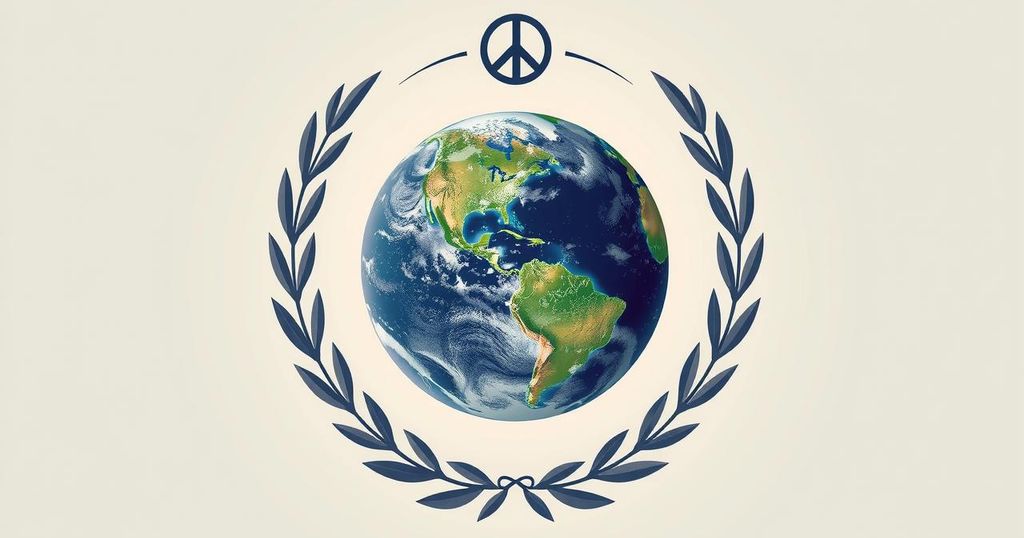UN General Assembly Approves Resolution Condemning Russia for Ukraine Conflict

The UN General Assembly passed a resolution with 93 votes in favor, condemning Russia’s actions in Ukraine and calling for its withdrawal. India abstained from the vote, reflecting a neutral diplomatic stance. The resolution highlights growing divisions in international support for Ukraine, despite prompting applause during its adoption.
The United Nations General Assembly recently adopted a resolution condemning Russia, calling for its immediate withdrawal from Ukrainian territory. This resolution was passed with 93 votes in favor, 18 against, and 65 abstentions, coinciding with the third anniversary of the ongoing conflict in Ukraine initiated by Russia. It was presented by the United States with modifications suggested by European nations and emphasizes the need for de-escalation and a peaceful resolution to the war, which has inflicted significant destruction and suffering on civilians.
The resolution’s intentions include promoting an early cessation of hostilities and ensuring alignment with United Nations Charter and international laws. While it marks a significant endorsement for Ukraine, the number of abstentions reflects a growing divide in support for Kyiv within the UN body. To add context, the US also proposed an alternative resolution focused on memorializing the loss of life during the conflict, while France sought to alter the terminology describing the conflict to reflect Russia’s actions more accurately.
India opted to abstain from voting, joining the majority of UN member states that withheld their support. The decision aligns with India’s nuanced diplomatic stance on the Ukraine crisis, emphasizing a desire for peace and resolution without directly condemning any party involved. As the resolution was adopted, applause resonated within the UNGA hall, indicating a level of approval from several member nations.
Among the nations that voted against the resolution were Algeria, China, and Belarus, along with several others, totaling 18 dissenters. Conversely, a broad coalition of countries, including the US, UK, and numerous European nations, supported the resolution, reflecting a strong alignment towards addressing the conflict in Ukraine.
The full count of votes revealed the complexities of international relations, with a significant number of countries choosing to abstain rather than take a definitive stance against Russia or in favor of Ukraine, evidencing the intricate dynamics at play in this global issue. Members that abstained included India, Brazil, and Saudi Arabia, indicating a significant portion of states opting for a neutral position amidst the heightened geopolitical tensions.
In summary, the UN resolution condemning Russia and calling for its withdrawal from Ukraine has garnered support from 93 nations, with 18 opposing and 65 abstentions. India’s abstention reflects its careful diplomatic approach. While the resolution is a victory for Ukraine, the divided responses illustrate ongoing complexities in international relations regarding the conflict. The voting patterns show a rift in global consensus about the nature and resolution of the war.
Original Source: www.hindustantimes.com







